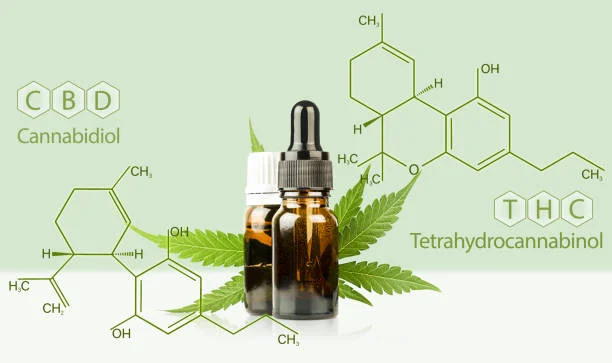
The cannabis industry has seen a surge in different THC variants, each with unique properties and effects. One of the lesser-known but increasingly popular cannabinoids is Delta 6a10a THC. If you’re curious about how it compares to other THC variants like Delta 8, Delta 9, and Delta 10, this guide will break down the key differences to help you understand what makes Delta 6a10a THC unique.
What is Delta 6a10a THC?

Delta 6a10a THC is a relatively obscure form of tetrahydrocannabinol (THC) that has recently gained attention due to its reported mild psychoactive effects and potential therapeutic benefits. It is considered an isomer of Delta 9 THC, meaning it shares the same chemical formula but has a slightly different molecular structure, which can lead to unique effects on the body.
While research on Delta 6a10a THC is still in its early stages, anecdotal reports suggest it provides a balanced experience, with effects that fall somewhere between the calming properties of Delta 8 THC and the more potent psychoactive effects of Delta 9 THC.
How Does Delta 6a10a THC Compare to Other THC Variants?

To better understand Delta THC, let’s compare it with other well-known THC variants: Delta 8, Delta 9, and Delta 10 THC.
1. Psychoactive Effects
- Delta 9 THC: The most well-known and potent form of THC, primarily found in cannabis. It delivers strong psychoactive effects, often associated with euphoria, altered perception, and potential anxiety.
- Delta 8 THC: Known for its milder, more relaxing high with fewer side effects like anxiety and paranoia.
- Delta 10 THC: Typically provides a more uplifting, energizing experience, often compared to a mild Sativa strain.
- Delta 6a10a THC: Falls somewhere in between, offering a moderate high that’s both relaxing and uplifting, without the overwhelming intensity of Delta 9.
Key Difference: THC offers a balanced experience, making it a suitable choice for those seeking mild psychoactive effects without feeling overly sedated or overly stimulated.
2. Legality and Availability
- Delta 9 THC: Federally illegal in most places, except in states with legalized recreational or medical cannabis.
- Delta 8 THC: Federally legal under the 2018 Farm Bill but banned in some states.
- Delta 10 THC: Also legal under the Farm Bill but facing similar state-specific restrictions.
- Delta 6a10a THC: Less regulated and not as well-known, meaning its legal status can vary and may fall under the same legal gray area as Delta 8 and 10.
Key Difference: Due to its relative obscurity, 6a10a THC Delta is often less scrutinized but still falls under federal hemp regulations.
3. Potential Benefits
- Delta 9 THC: Commonly used for pain relief, appetite stimulation, and nausea reduction but can cause anxiety in some users.
- Delta 8 THC: Popular for anxiety relief, mild pain relief, and improved sleep quality.
- Delta 10 THC: Favored for its energizing properties and focus-enhancing effects.
- Delta 6a10a THC: Users report benefits such as mood enhancement, stress relief, and mild pain management without the intense high of Delta 9.
Key Difference: Delta 6a10a THC offers a more moderate therapeutic effect, potentially making it an ideal option for daily use.
4. Molecular Structure and Potency
- Delta 9 THC: The most potent THC variant due to its strong binding affinity to CB1 receptors in the brain.
- Delta 8 THC: A slightly different double-bond placement makes it less potent and more tolerable.
- Delta 10 THC: A structurally unique variant that offers weaker psychoactive effects compared to Delta 9.
- Delta 6a10a THC: Its structure is slightly altered from Delta 9, making it a smoother experience with reduced potency.
Key Difference: It offers a unique structure that results in a milder experience with fewer side effects.
How to Use Delta THC
Delta THC is available in various forms, similar to other THC variants, including:
- Vape Cartridges: Popular for quick onset and convenience.
- Tinctures: Easy to dose and offers long-lasting effects.
- Edibles: Slower onset but provides sustained relief.
- Capsules: Ideal for those who prefer precise dosing.
Tip: Start with a low dose to gauge how your body reacts, especially if you’re new to this cannabinoid.
Is Delta 6a10a THC Right for You?
If you’re looking for a THC variant that provides a moderate high with potential therapeutic benefits, Delta THC could be a great option. It’s best suited for:
- Individuals seeking stress relief without overwhelming psychoactive effects.
- Those who want a balanced experience between relaxation and focus.
- Users who are sensitive to Delta 9 THC and experience anxiety with it.
Potential Side Effects of Delta 6a10a THC

Like any cannabinoid, Delta THC may have side effects, which can include:
- Dry mouth
- Mild dizziness
- Increased appetite
- Drowsiness (depending on dosage)
To minimize side effects, always start with a small dose and monitor how your body responds.
Conclusion
Delta 6a10a THC is an intriguing alternative to other THC variants, offering a unique balance of effects that can appeal to both recreational and medicinal users. Whether you’re looking for a mild euphoric experience or subtle therapeutic benefits, this cannabinoid might be worth exploring. However, due to limited research, it’s important to purchase products from reputable sources and start with low doses.







